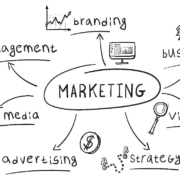Simple Tips to Follow Up With New Contacts
Making new connections is essential for personal and professional growth, but the key to turning those initial meetings into meaningful relationships lies in the follow-up. At The Hyve Life, we believe that effective follow-up can transform casual encounters into valuable opportunities. In this blog, we’ll share simple tips to help you follow up with new contacts in a way that fosters genuine connections and opens doors to new possibilities.
Why Follow-Up Matters
Following up after meeting new contacts is crucial for several reasons:
Building Relationships: It helps you build and maintain relationships, which can lead to future collaborations, partnerships, or friendships.
Staying Top-of-Mind: A thoughtful follow-up ensures you stay top-of-mind, increasing the likelihood of future interactions.
Demonstrating Professionalism: Prompt and courteous follow-up reflects well on your professionalism and reliability.
Tips for Effective Follow-Up
Follow Up Promptly
Timing is everything when it comes to following up. Aim to reach out within 24 to 48 hours of meeting someone new. This shows that you value the connection and are eager to keep the conversation going.
Send a Quick Email or Message: A brief, personalized message expressing your pleasure in meeting them can set a positive tone and reinforce your interest in staying connected.
Personalize Your Message
Generic follow-up messages can come across as insincere. Take the time to personalize your communication to show that you genuinely remember and value the interaction.
Reference Specifics: Mention something specific you discussed during your initial meeting. This could be a topic you both found interesting or a shared connection.
Show Genuine Interest: Express your interest in their work, hobbies, or any mutual interests you discovered.
Be Clear About Your Intentions
When following up, make your intentions clear. Whether you want to schedule a meeting, collaborate on a project, or simply stay in touch, being transparent helps set expectations.
State Your Purpose: Clearly state why you’re reaching out. For example, “I’d love to continue our conversation about [topic] over coffee sometime next week.”
Provide Value
One of the best ways to nurture a new connection is by offering something of value. This could be information, resources, or introductions that might be helpful to them.
Share Relevant Content: If you come across an article, book, or resource that aligns with their interests or challenges, share it with them.
Make Introductions: Introduce them to someone in your network who might be a beneficial contact for them.
Be Consistent and Patient
Building meaningful relationships takes time. Consistent follow-up shows that you’re genuinely interested in maintaining the connection, but it’s also important to be patient and respectful of their time and availability.
Schedule Regular Check-Ins: Depending on the nature of the relationship, schedule regular check-ins, whether it’s a monthly email or a quarterly coffee meeting.
Respect Their Space: If they don’t respond immediately, give them some time before following up again. Everyone has different schedules and priorities.
Use Multiple Channels
People have different preferences for communication, so it can be beneficial to use multiple channels to follow up. However, be mindful of not overwhelming them with messages.
Email: A standard and professional way to follow up.
LinkedIn: Great for professional connections and networking.
Phone Call: More personal and can be very effective for certain types of follow-ups.
Keep It Brief and Friendly
Your follow-up message should be concise and to the point. A long-winded message can be off-putting and may not hold the recipient’s attention.
Friendly Tone: Keep the tone friendly and approachable, making it easy for them to respond.
Express Gratitude
Always thank them for their time and the initial meeting. Gratitude goes a long way in establishing a positive rapport.
Simple Thank You: A simple “Thank you for taking the time to meet with me” can leave a lasting positive impression.







